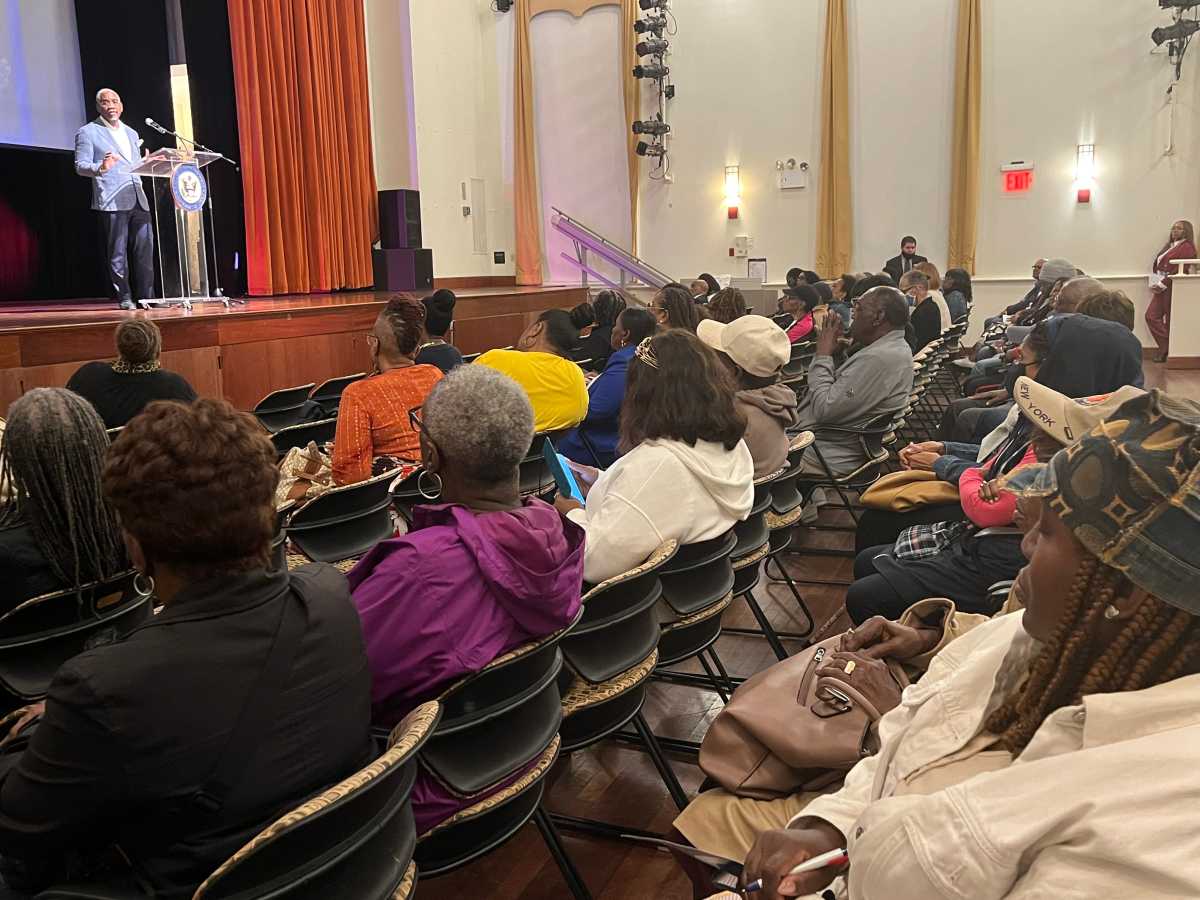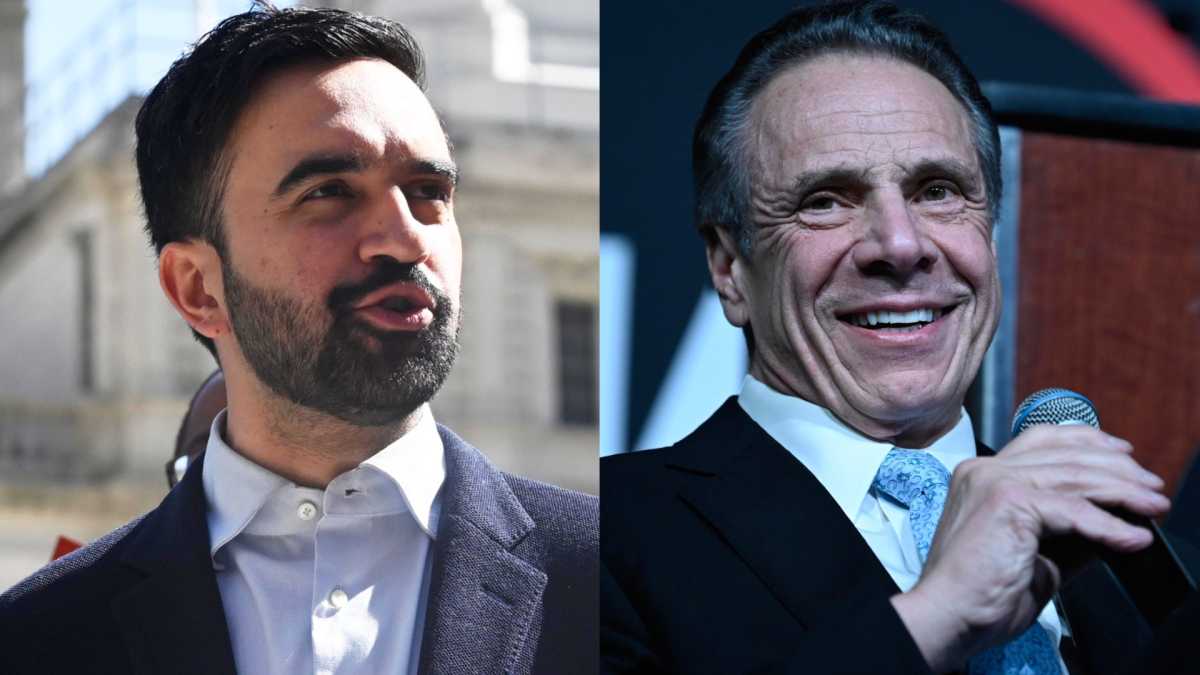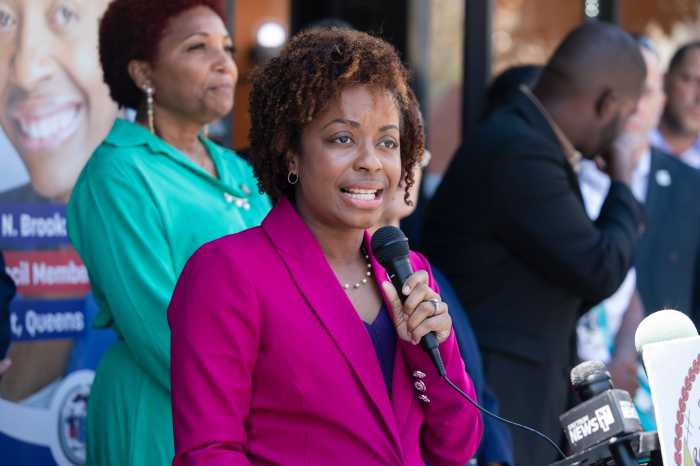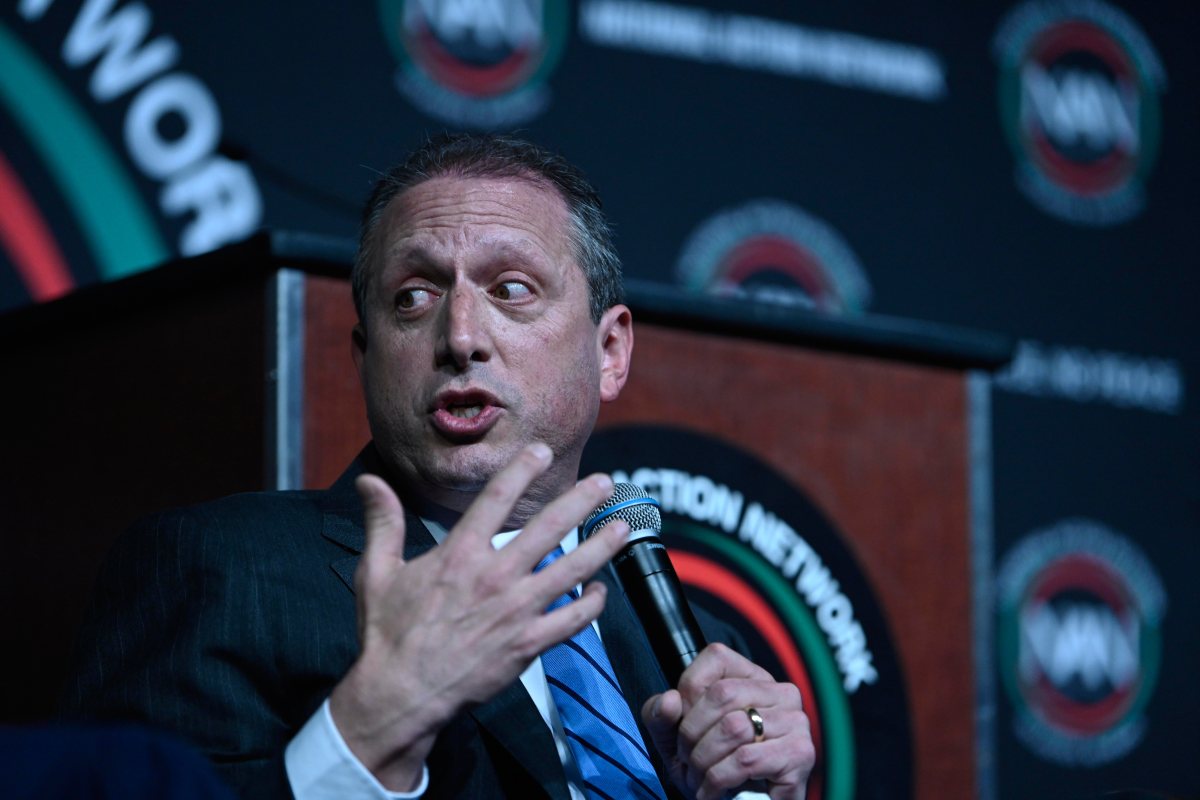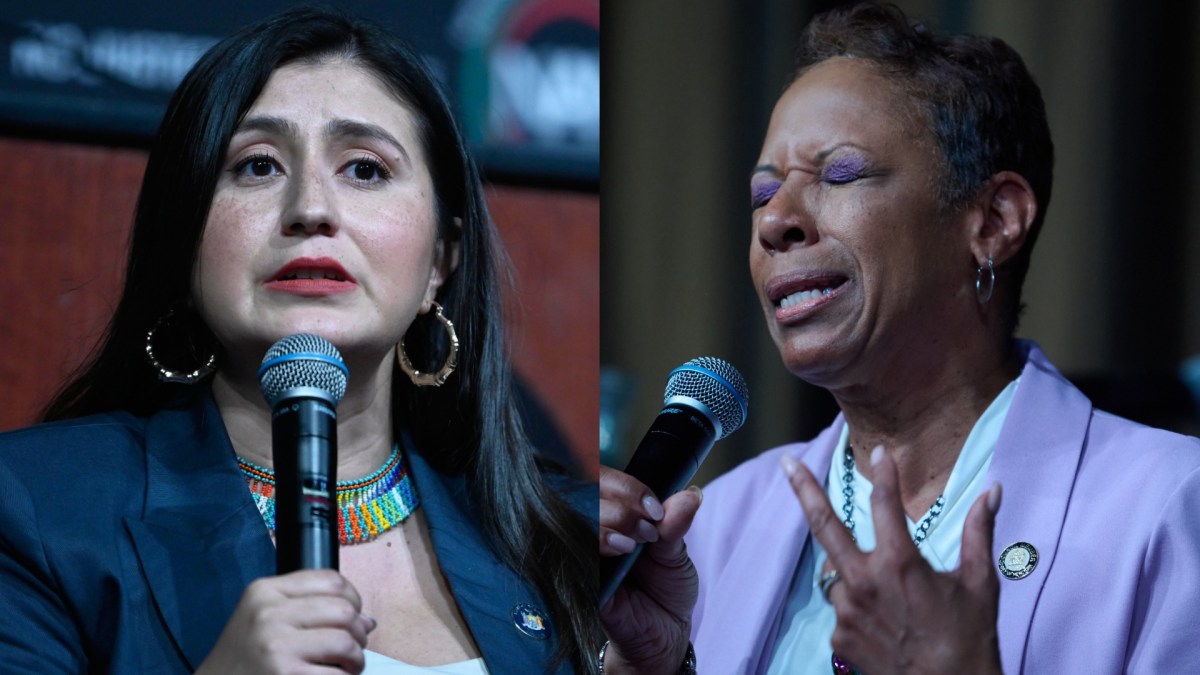U.S. Rep. Gregory Meeks hosted a town hall meeting Monday, June 16, at the Jamaica Performing Arts Center to address the impact of Trump administration policies on New Yorkers.
Dozens of attendees filled the venue’s theater to hear Meeks deliver an overview of recent federal developments, followed by a live Q&A session with constituents.
Much of Meeks’ remarks focused on criticism of the Trump administration’s recent policy agenda, including unmet campaign promises related to the cost of living, as well as proposed cuts to Medicaid and reductions to the federal workforce through the Department of Government Efficiency (DOGE).
“Local politics and local issues are always important,” Meeks said, emphasizing the importance of engaging directly with constituents across New York’s 5th Congressional District. The district includes the Rockaway peninsula, Cambria Heights, Hollis, Howard Beach, Jamaica, Kew Gardens, Laurelton, Queens Village, Richmond Hill, Rosedale, South Jamaica, Saint Albans, Springfield Gardens, and South Ozone Park, as well as JFK Airport.
Calling Washington, D.C. “absolute chaos,” Meeks criticized the president for failing to deliver on promises to reduce grocery and living costs. “We have not focused or voted on one bill that would do any of these things,” he said. “What we focused on first and foremost, and the first thing they were trying to do, was to make sure that the tax cuts he put in place in the first four years, he made permanent.”
Meeks also urged a more measured approach to federal budget reductions, pointing to former presidents Bill Clinton and Barack Obama as examples. “When [Clinton] left in 2000, there was no deficit, unemployment was down, in fact, we were talking about a surplus. Had we done that, or continued that, we would be in a much better place today,” he said.
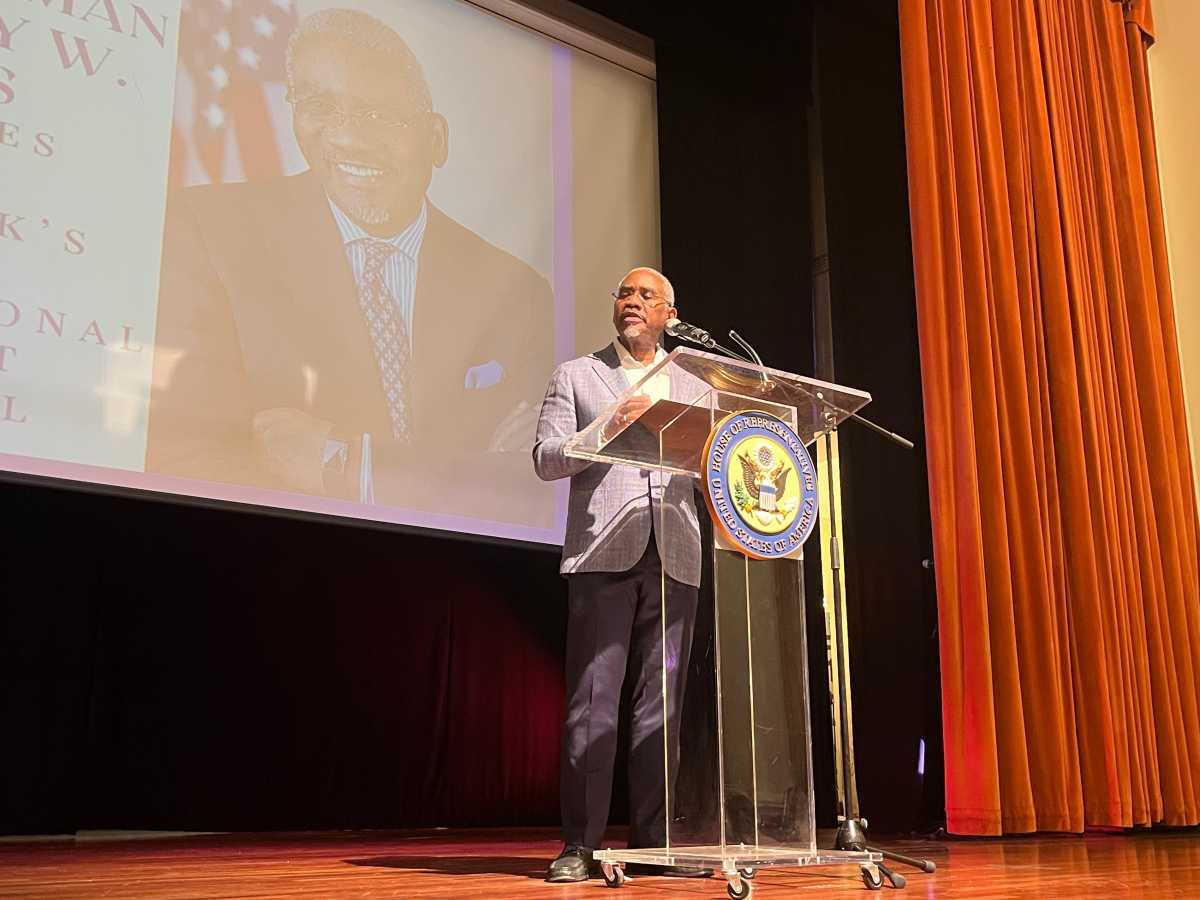
Meeks told the crowd that Republican-led budget cuts in Washington could severely impact critical federal agencies and social safety net programs, including Medicare, Medicaid, and SNAP.
“These cuts have impacted over 18 federal agencies,” Meeks said. “What we’ve been dealing with a couple of weeks ago in Washington, D.C. was a package called the reconciliation package… The first thing they needed to do was find money. Look at what happened—cuts to the Social Security Administration, we got rid of foreign policy and soft power with USAID, cuts in HUD, cuts at the Interior Department… people got laid off… I get emails from folks who are stuck overseas.”
Meeks argued that the reconciliation bill—recently passed by House Republicans—is part of an effort to finance extended tax breaks for the wealthy by slashing essential public programs. “The reconciliation package is all in the name of finding money, so that you can give these tax cuts to the super rich,” he said.
He cited Congressional Budget Office findings that the plan would disproportionately harm lower-income Americans while increasing resources for top earners. “To me, that sounds like a reverse Robin Hood situation, where you’re taking from the poor and giving to the rich,” Meeks said.
The congressman also warned of the bill’s local impact. He said potential cuts of over $800 billion to Medicare and $250 billion to SNAP would be devastating for Queens hospitals, particularly Jamaica Hospital, St. John’s Episcopal Hospital, and NYC Health + Hospitals/Queens. “They would lose an estimated $22 million in Medicaid reimbursements,” Meeks said. “Hospitals like these can’t afford these kinds of cuts. In New York, Medicaid pays for the care of 64% of people in nursing homes, as well as community-based services like home health aides.”
Q&A session touches on housing, Democratic strategy and endorsements
Following his remarks, Meeks took both pre-submitted and live questions from attendees. Topics ranged from local housing to national political strategy.
When asked about perceived weaknesses within the Democratic Party, Meeks stressed unity, legal challenges to executive orders, and the importance of voter turnout. “There are certain seats that we have to win to make a difference because elections matter,” he said, referring to the upcoming 2026 midterms.
One attendee raised concerns about senior housing in downtown Jamaica, noting the proliferation of large apartment developments. Meeks responded that he shared those concerns, pointing to reduced federal funding for affordable housing and emphasizing that city and state programs often require developments to set aside units for seniors and low-income households.
When asked about his preferred candidate in the next mayoral race, Meeks said he planned to rank former Governor Andrew Cuomo as his first choice and current City Council Speaker Adrienne Adams as his second. “I have a pick, and I am voting for Andrew Cuomo number one, and I love and respect Adrienne Adams… so I am going to say number one and number two,” he said, urging attendees to participate in the upcoming primary election regardless of their candidate of choice.

